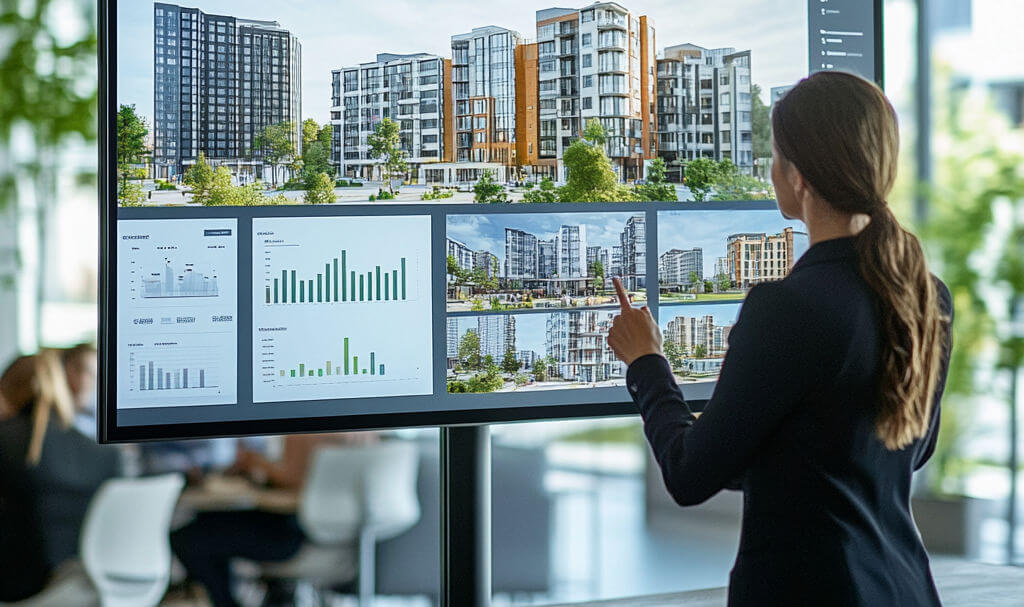Navigating the complex landscape of commercial real estate (CRE) requires more than just a basic understanding of the market. Whether you’re eyeing a prime spot in an urban center or exploring opportunities in suburban developments, finding the right commercial real estate broker is crucial. A good broker can be the difference between a successful commercial property investment and a missed opportunity.

1. Understanding the Role of a Commercial Real Estate Broker
Before diving into the process of finding a broker, it’s important to understand what a commercial real estate broker does. These professionals specialize in facilitating the buying, selling, or leasing of commercial properties. Their expertise extends to various types of properties, including office spaces for lease, retail spaces, industrial warehouses, and more.
A good broker will have a deep understanding of the market, including commercial real estate trends and market analysis. They act as your advisor, negotiator, and advocate, ensuring that your interests are protected throughout the process.
2. Urban vs. Suburban CRE: What’s the Difference?
The first step in finding the right broker is understanding the market you’re interested in. Urban and suburban CRE markets have distinct characteristics that impact development decisions and commercial property investment strategies.
Urban CRE:
- High Demand and Competition: Urban areas are often in high demand due to the concentration of businesses, population density, and access to infrastructure. This can lead to intense competition for prime commercial properties.
- Mixed-Use Developments: Urban spaces are increasingly seeing mixed-use developments that combine residential, commercial, and retail spaces. These developments require brokers who understand the complexities of zoning laws and multi-use planning.
- Sustainability and Smart Cities: Urban areas are at the forefront of sustainability initiatives, with many cities adopting smart technology for efficient resource management. Brokers with experience in these areas can provide valuable insights into long-term commercial real estate investments.
Suburban CRE:
- Growth and Expansion: Suburban areas offer opportunities for growth and expansion, particularly for businesses looking to move away from crowded urban centers. This is especially true post-pandemic, as remote work trends continue to influence commercial real estate trends.
- Lower Costs and Larger Spaces: Suburban properties tend to offer more space at a lower cost compared to urban properties. This is attractive to businesses that require larger facilities, such as warehouses or distribution centers.
- Community-Focused Development: Suburban developments often focus on creating community-centric spaces, with an emphasis on amenities that cater to families and local businesses. Brokers who understand these dynamics can help identify properties that align with these trends.

3. Key Qualities to Look for in a Commercial Real Estate Broker
Now that you have a better understanding of the market, it’s time to identify the key qualities that make a good commercial real estate broker.
Experience in the Specific Market
When choosing a broker, it’s essential to find someone with experience in the specific market you’re interested in. A broker who has worked extensively in urban CRE may not have the same level of expertise in suburban markets, and vice versa. Look for a broker who has a track record of successful transactions in the type of property and location you’re targeting.
Strong Network and Market Knowledge
A good broker should have a strong network of contacts, including property owners, developers, and other real estate professionals. This network can provide you with access to off-market opportunities and valuable insights into CRE market trends. Additionally, the broker should be knowledgeable about the latest developments in the market, including emerging trends and potential risks.
Negotiation Skills
The ability to negotiate favorable terms is a critical skill for a commercial real estate broker. Whether you’re buying, selling, or leasing a property, a broker with strong negotiation skills can help you secure the best deal. This includes understanding the market value of properties, as well as being able to navigate complex legal and financial terms.
Transparency and Communication
Open and transparent communication is key to a successful broker-client relationship. Your broker should be someone who keeps you informed at every stage of the process and is readily available to answer your questions. They should also be transparent about their fees and any potential conflicts of interest.
Proven Track Record
Ask potential brokers for references and case studies that demonstrate their ability to close deals similar to the one you’re pursuing. A broker with a proven track record will have no problem providing you with this information.

4. Steps to Finding the Right Commercial Real Estate Broker
Finding the right broker involves more than just a quick online search. Here are some steps to help you identify and select the best broker for your needs:
1. Research and Referrals
Start by researching brokers in your area who specialize in commercial real estate. Look at their websites, read client testimonials, and review their portfolio of completed transactions. Additionally, ask for referrals from colleagues, business associates, or industry contacts who have worked with brokers in the past.
2. Interview Multiple Brokers
Don’t settle for the first broker you come across. Interview multiple brokers to get a sense of their expertise, approach, and personality. Ask them about their experience in your target market, their recent transactions, and how they plan to help you achieve your goals.
3. Check Credentials and Affiliations
Verify the broker’s credentials, including their licensing and any professional affiliations. Membership in organizations like the National Association of Realtors (NAR) or the Society of Industrial and Office Realtors (SIOR) can be an indicator of a broker’s commitment to professional development and ethical standards.
4. Assess Their Understanding of Your Needs
During the interview process, assess the broker’s understanding of your specific needs. A good broker will ask questions about your business objectives, budget, and timeline, and will provide insights on how they can help you achieve your goals.
5. Review Their Marketing Strategy
If you’re selling or leasing a property, ask the broker about their marketing strategy. A good broker will have a comprehensive plan to market your property, including online listings, targeted advertising, and leveraging their network of contacts.
6. Negotiate Terms and Fees
Once you’ve identified a broker you’re comfortable with, negotiate the terms of your agreement, including the broker’s fees. Make sure you understand how the fees are structured and what services are included.

Finding a good commercial real estate broker is a critical step in achieving success in the CRE market. By understanding the unique dynamics of urban and suburban markets, identifying key qualities in a broker, and following a strategic approach to your search, you can ensure that you’re making the right choice for your business.
When you’re ready to take the next step in your commercial real estate journey, consider partnering with “Work With Bibi.” With a proven track record, deep market knowledge, and a commitment to your success, Bibi is the broker you can trust to guide you through the complexities of the CRE market.
Subscribe to the newsletter
Don’t Miss Any of Our Blog Posts, Subscribe to Our Weekly Newsletter Today!
Recent posts

What to Expect When Working with a CRE Agent: Your Guide to a Successful CRE Journey
Navigating the commercial real estate (CRE) market is a complex process that demands more than just basic knowledge. It requires

Benefits of Adaptive Reuse for Restaurant Spaces
Adaptive reuse, the process of repurposing existing buildings for new uses, has become an increasingly popular strategy in the restaurant

Basics of Commercial Real Estate (CRE)
Commercial Real Estate (CRE) is distinct from residential real estate, which involves properties meant for private living. While residential properties



